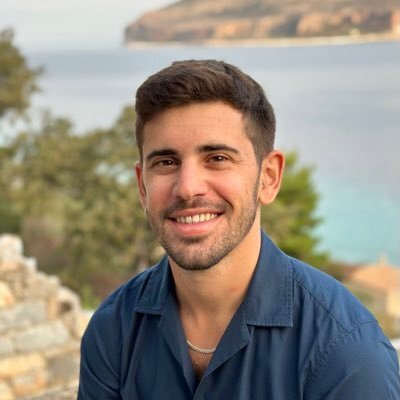

This course is also available in French, Spanish and Portuguese.
Are you ready to learn how to gain influence and trust with your audience in today’s digital world? Don’t miss the chance to register for the free on demand course, “Digital Content Creators and Journalists: How to be a Trusted Voice Online,” organized by the Knight Center for Journalism in the Americas in partnership with UNESCO.
Whether you’re an aspiring or seasoned creator looking to incorporate journalistic standards into your content or a journalist seeking to engage audiences in innovative ways, this dynamic on-demand course offers crucial insights and practical tools. Originally held from November 18 to December 15, 2024, the course is now available for you to explore at your own pace. Through four comprehensive modules, you will learn how to build audience trust, navigate the ethical responsibilities of shaping public opinion, and create compelling content during conflicts and crises, all while promoting media and information literacy.
You can read more about the course here.
For a deeper dive into the topic, download the Knight Center’s free e-book, Content Creators and Journalists: Redefining News and Credibility in the Digital Age, edited by Dr. Summer Harlow and featuring insights from global digital creators and journalists, including Dylan Page, Kassy Cho, and Hugo Travers.
This course is asynchronous, meaning there are no required live events, and you can complete activities at your own pace throughout each week.
The material is organized into five modules covering various topics through videos, guest speakers, readings, and discussion forums:
Introduction Module
Welcome! In this introductory module, you will get an overview of the course structure and meet the instructors, Salla-Rosa Leinonen and Enrique Anarte. They will address what we mean by “digital content creators” and discuss why it’s important to understand the role of digital content creators as key players in the new information landscape. There also are introductory reading materials for you to review to help prepare you for this course.
Module 1: Creating Ethical & Reliable Content: What Digital Content Creators and Journalists Can Learn from Each Other
Research shows that many people increasingly prefer to get their news and information from so-called “influencers” rather than “real” journalists. This module will assist you in understanding the new digital landscape, the role of trust in journalism and verified information, and how audiences gravitate more toward digital content creators.
Module 2: Content Creators as Catalysts for Media and Information Literacy
There’s no denying the important global role digital content creators have begun to play in disseminating news and information and helping shape public opinion. With the increasing influence of algorithms, online filter bubbles, and targeted content, there is a pressing need to understand how these factors shape and sometimes distort information available to online users. In this regard, media and information literacy play a crucial role in empowering content creators and users to navigate the challenges and opportunities of digital platforms.
This module dives into why journalists and digital content creators must be media and information literate and how you can promote and advocate for media and information literacy for your audience.
Module 3: Content creators and the right to freedom of expression
What does freedom of expression mean to you? Have you wondered how you and the content you produce shape others’ enjoyment of the right to free expression? Are you aware of the laws governing freedom of expression and content creation in your country? This module provides an essential understanding of the fundamental right to freedom of expression, exploring its role as a cornerstone of human rights that enables other freedoms.
Module 4: Creating Content in Times of Elections, Conflicts and Crises
In times of humanitarian disasters, conflicts, climate emergencies, and health crises, verified and accurate information can be lifesaving. In such contexts, the integrity of information becomes even more critical, as misinformation, disinformation and harmful content online has severe consequences. Content creators are often at the eye of the storm as the content they produce has the power to amplify social divisions and public mistrust in information – further endangering vulnerable and minority communities.
Register now for free and gain immediate access to the introduction module materials.
If you have any questions, please contact us at journalismcourses@austin.utexas.edu.
 Enrique Anarte Lazo is a Spanish journalist and currently leads the award-winning TikTok channel of the Thomson Reuters Foundation at Openly, TRF’s global LGBTQ+ news platform. He has covered queer and human rights stories in over 15 countries and has worked for Reuters, NBC News, and DW, among others. In addition, he is an ambassador for the Poynter Institute’s media literacy initiative, MediaWise, where he focuses on misinformation targeting LGBTQ+ people. On his personal social media channels, he offers insights into European politics, queer issues, and misinformation.
Enrique Anarte Lazo is a Spanish journalist and currently leads the award-winning TikTok channel of the Thomson Reuters Foundation at Openly, TRF’s global LGBTQ+ news platform. He has covered queer and human rights stories in over 15 countries and has worked for Reuters, NBC News, and DW, among others. In addition, he is an ambassador for the Poynter Institute’s media literacy initiative, MediaWise, where he focuses on misinformation targeting LGBTQ+ people. On his personal social media channels, he offers insights into European politics, queer issues, and misinformation.

Salla-Rosa Leinonen is a producer and writer for Finland’s public broadcaster Yle. She specializes in storytelling on social media to reach a young and “hard-to-reach” audience. Her goal is to create news, documentaries, and factual content accessible to diverse groups of people. At the youth media brand Yle Kioski, she works with Finland’s most talented young reporters and video journalists. From 2021 to 2022, Salla-Rosa was a fellow at LSE Polis, where she researched and published a paper on what journalists can learn from influencers.